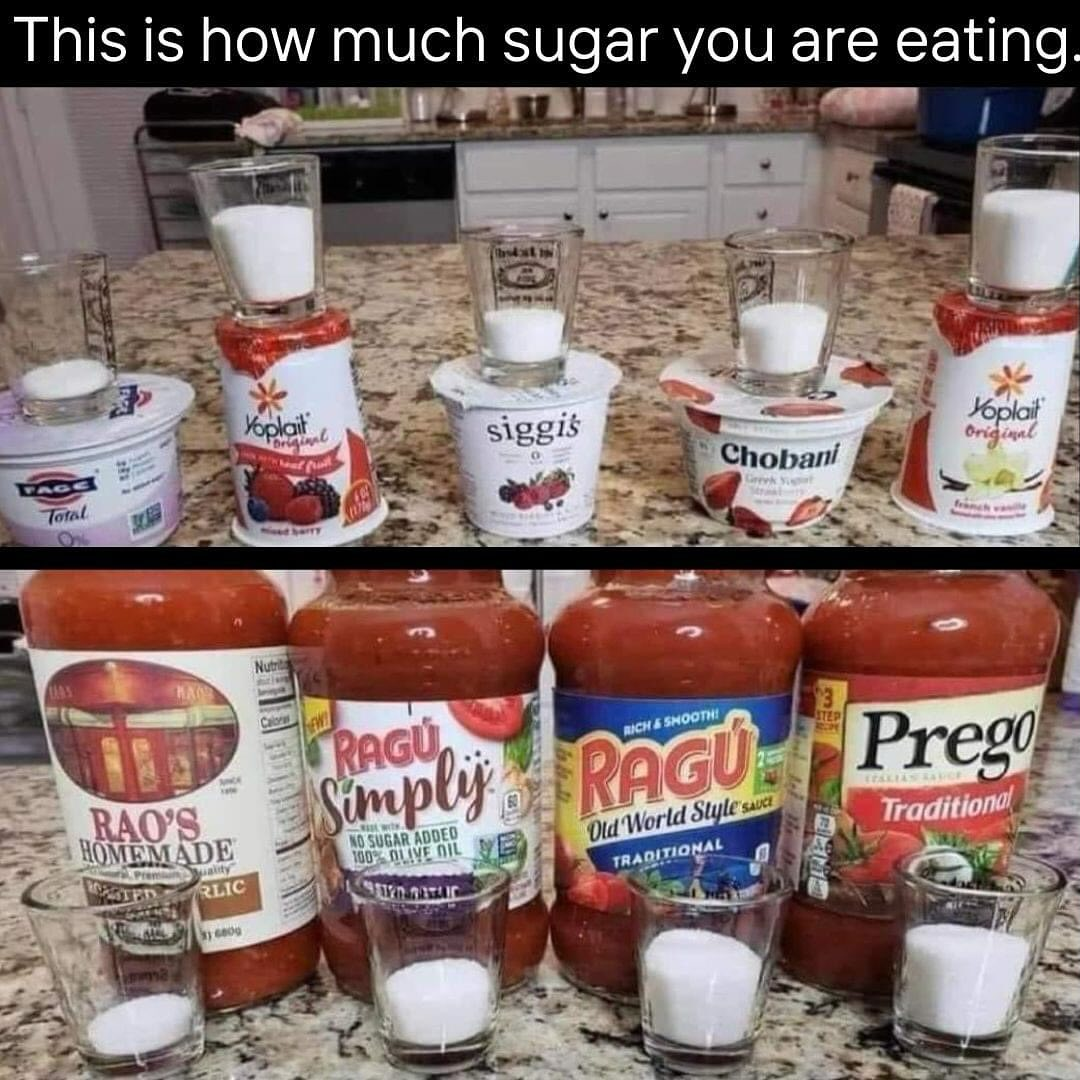this post was submitted on 05 Nov 2024
626 points (91.8% liked)
memes
10430 readers
2732 users here now
Community rules
1. Be civil
No trolling, bigotry or other insulting / annoying behaviour
2. No politics
This is non-politics community. For political memes please go to !politicalmemes@lemmy.world
3. No recent reposts
Check for reposts when posting a meme, you can only repost after 1 month
4. No bots
No bots without the express approval of the mods or the admins
5. No Spam/Ads
No advertisements or spam. This is an instance rule and the only way to live.
Sister communities
- !tenforward@lemmy.world : Star Trek memes, chat and shitposts
- !lemmyshitpost@lemmy.world : Lemmy Shitposts, anything and everything goes.
- !linuxmemes@lemmy.world : Linux themed memes
- !comicstrips@lemmy.world : for those who love comic stories.
founded 1 year ago
MODERATORS
you are viewing a single comment's thread
view the rest of the comments
view the rest of the comments

That seems about right for sugar contents for such foods, especially since the yogurts have berries in them. I dont quite get what point is getting made, most fruits and berries have a good bit of sugar in them. There isnt anything inately bad about sugar, maybe when its high fructose corn zyrup but thats kinda its own thing. Also tomatoes are a berry.
Well in moderation sugar isn't too bad. The problem comes when food manufacturers start adding sugar to foods so it will taste better and if you are not paying attention to the content you can consume a significant amount in a day.
In conclusion, very little scientific evidence exists that indicates a benefit of added dietary sugars; however, an overwhelming and growing body of evidence highlights the negative effects of excessive or prolonged sugar intake
Fair enough, though I was mostly commenting on the above meme. The sugar content seems about right for everything involved, maybe on the higher end but not by a massive amount.
Also added sugar is usually in an ideal situation would be for preservative and manufacturing reasons. But then again I dont actually get cooking as a whole, I can cook meat and thats about it.
Berries like raspberries blackberries blueberries and even strawberries don't have lots of sugar, maybe 5g per 100g. That's one level teaspoon.
The lactose in milk is almost all consumed in the fermentation process, so maybe a few more grams per 100.
The rest of the sugar in those glasses is just sugar manufacturers include to make their product more appealing.
One of the problems with sugar is that it represents empty calories.
Given my age, weight, and activity levels maybe I need x calories per day, any more and I'll gain weight. I also need protein and fibre and micronutrients. As you get older (like me) you get less good at extracting nutrients.
The challenge is, getting enough nutrients in few enough calories to avoid gaining weight.
In this context sugar is just dead weight.
The intrinsic sugar in fresh berries with fiber are different than free sugars. Excess sugar is problematic for several reasons, chiefly chronic metabolic and cardiovascular diseases [1]. The more well known among them is insulin resistance. Insulin is an essential hormone for metabolism; without insulin you die (as in the case of type 1 diabetes). The pancreas pumps insulin to get the cells to absorb blood sugar, but if cells don't respond to the insulin properly ("resistant"), the pancreas keep pumping insulin and eventually cannot keep up resulting in high blood sugar that damages your body [2]. That's why one should avoid spiking blood sugar. Like many physiological systems sugar triggers a homeostatic response, so the body "expects" a level of sugar consumption once it gets used to it. This is also why artificial sweeteners are problematic: they don't reduce the dependency on sugar and moreover they disrupt the blood-sugar response whereby you don't get the same satiety from carbohydrates, etc. [3]. But it's not all doom and gloom, exercise increases your insulin sensitivity and reducing your sugar intake will almost always result in weight loss [2]. Reducing sugar intake also reduces your sugar dependency but can take a few months.